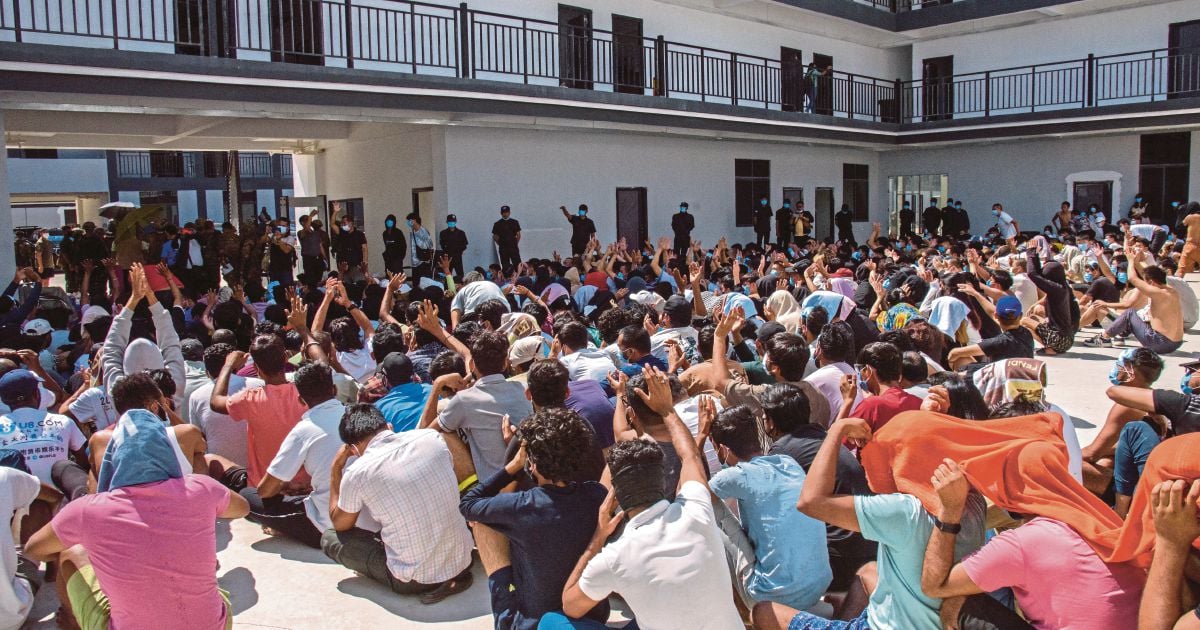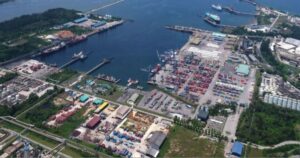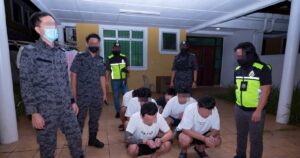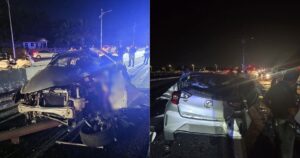In February, Thai and Myanmar authorities worked together to turn off electricity and the Internet in an unprecedented operation to free thousands of trafficking victims forced to work in cyberscam centres in Myanmar.
It succeeded, and some 7,000 people from 29 countries were released.
But trafficking experts question how significant the blackouts were, and will be, if satellite Internet technology such as Starlink, China‘s SpaceSail or the French-German Eutelsat becomes abundant in the region.
Owned by tech billionaire Elon Musk’s Space X, Starlink provides high-speed Internet via portable packs.
Registered Starlink users simply plug in the device, which is slim enough to carry in a backpack, and point it towards the sky to access a stable Internet connection. Service plans begin at £50 per month.
“We’re starting to see Starlink signals pop up more and more in the areas where these compounds are,” said Andrew Wasuwongse, country director of International Justice Mission Thailand, an anti-trafficking non-profit organisation.
More than 80 Starlink devices were seized by authorities in Myanmar and Thailand last year, according to the United Nations (UN) Office on Drugs and Crime.
Countries have differing restrictions on the devices that make their legality ambiguous. In Thailand and Myanmar, they are considered illegal and not licensed by authorities.
Starlink states on its website that users cannot engage its services for “fraudulent or illegal” activities.
Aware of the devices’ use in propping up illegal operations, Thai authorities attempt to seize them, but an Asean trade agreement allowing goods to be imported without inspection makes it difficult.
Yet their clandestine presence has also proven useful amid the recent earthquake in Myanmar, providing connectivity to help support relief efforts amid wider blackouts.
Many of the scam centres also relied on illegal Thai Internet connections, Wasuwongse said, and freed workers reported that as a result, the Internet shutdown during the rescue operation did very little.
The arrest warrants and threats of raids had more of an impact in the release of what he described as a “drop in a bucket” of victims.
The UN estimates hundreds of thousands of people are trapped in scam farms run by criminal networks in places like Myanmar, Cambodia and Laos.
Sara, who did not want to use her full name, is one such worker, lured to Bangkok from South Africa with the promise of a tech job, only to be trafficked into Myanmar.
There, she said she spent nine months coercing strangers online, 21 hours a day, to invest in bogus schemes or she risked being sent to the “prison”.
“It’s an underground place that is dark, where they will hang you upside down and torture you, electrocute you and beat you up for three days, or they would lock you in a room alone, with no human contact, with no water, with no food for three days,” she said.
Sara was released when she convinced her captors her mother was sick, and she managed to claw together close to US$100,000 as ransom.
Palit, a 42-year-old Thai national, escaped a similar compound in 2023 after six months of being forced to engage in fake online relationships that would coerce people into giving significant amounts of money.
He lived with 11 men in a small room with one bathroom that only had dirty water. Many got sick, he said, but there was no medicine or opportunities to rest.
“If we couldn’t work and if we did not listen to commands, we would get abused,” he said.
While Palit was rescued and returned to Thailand, thousands of victims remain stuck.
Internet access was vital to their operation and criminal gangs, largely from China, Taiwan, South Korea and Japan, invested in ensuring connections via unconventional means, experts said.
Despite the gangs’ canny access to the Internet, wider shutdowns were not useless, said Rebecca Miller, Southeast Asia and Pacific regional coordinator of human trafficking and migrant smuggling at the UN Office on Drugs and Crime.
The strong government reaction was long overdue, said Phil Robertson, director of Asia Human Rights and Labour Advocates.
With a porous border, Thailand was a key transit point for people and products, from Internet devices to drugs, and had the power to make it difficult to operate the centres, he said.
* The writer is from Reuters
© New Straits Times Press (M) Bhd






